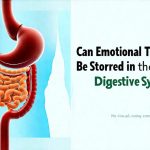The aftermath of significant life disruptions – whether stemming from trauma, prolonged stress, major life changes like relocation or job loss, or even intensive periods of personal growth – often involves a period of social recovery. This isn’t simply about returning to “normal”; it’s about recalibrating relationships, rebuilding trust (in oneself and others), and redefining one’s place within social structures. However, what is frequently overlooked during this crucial phase is the profound impact these experiences have on our digestive system, and how a fragile digestive state can significantly impede the entire recovery process. The gut-brain connection isn’t merely a scientific buzzword; it’s a fundamental physiological reality that dictates how we experience stress, regulate emotions, and ultimately, heal.
Social recovery demands energy – emotional, mental, and physical energy. When the digestive system is compromised, resources are diverted from repair and restoration to simply processing food (or attempting to), leading to fatigue, reduced nutrient absorption, and a heightened vulnerability to further setbacks. This creates a cyclical pattern where digestive fragility hinders social reintegration, which in turn exacerbates stress, further impacting digestion. Understanding this interplay is vital for supporting individuals navigating these challenging transitions and fostering genuine, lasting recovery. It’s about recognizing that healing isn’t just psychological or emotional; it’s deeply embodied. You may also find support in managing digestive noise during this time.
The Gut-Brain Axis & Social Stressors
The bidirectional communication network between the gut microbiota and the brain – the gut-brain axis – is profoundly affected by social stressors. This axis operates through multiple pathways, including the vagus nerve (a direct neural connection), the immune system, the endocrine system (hormone regulation), and the production of neurotransmitters. Social isolation, perceived rejection, or even simply navigating complex social dynamics can trigger a cascade of physiological responses that directly impact gut health. Chronic stress associated with social recovery often leads to increased intestinal permeability – commonly known as “leaky gut” – allowing undigested food particles and toxins to enter the bloodstream, triggering an immune response and systemic inflammation. If you’ve recently experienced digestive shifts due to stress, understanding this connection is crucial.
This inflammatory state isn’t just a physical issue; it significantly impacts mental health. Inflammation interferes with neurotransmitter production (like serotonin, often referred to as the “happy hormone”), contributing to anxiety, depression, and difficulty regulating emotions. Essentially, a stressed gut can exacerbate emotional vulnerability during a time when emotional resilience is paramount for social recovery. The brain’s ability to function optimally – to process information, make decisions, and engage in meaningful interactions – relies on a healthy gut microbiome and reduced inflammation.
Furthermore, the disruption of the gut microbiome itself plays a crucial role. Social stress can alter the composition of our gut bacteria, decreasing beneficial species and increasing potentially harmful ones. This imbalance (dysbiosis) further compromises digestive function, reduces nutrient absorption, and weakens the immune system, creating a vicious cycle that hinders recovery. We often think of social interaction as inherently positive, but for someone in recovery, even seemingly benign social situations can be perceived as threatening, triggering physiological stress responses that impact gut health. Understanding stool irregularity and its connection to stress is also important during this time.
The Role of Cortisol & Digestive Function
Cortisol, often dubbed the “stress hormone,” is released by the adrenal glands in response to perceived threats. While essential for acute survival, chronically elevated cortisol levels – common during prolonged social recovery periods – have a devastating effect on digestive function. Cortisol diverts blood flow away from the digestive system, prioritizing energy allocation towards more immediate perceived threats (fight or flight). This reduces digestive capacity, slows down motility (the movement of food through the digestive tract), and impairs enzyme production necessary for proper nutrient breakdown.
The consequences are far-reaching. Reduced stomach acid production hinders protein digestion and can contribute to bacterial overgrowth in the small intestine. Impaired gallbladder function affects fat digestion, leading to bloating and discomfort. Slowed motility results in constipation or diarrhea, further exacerbating digestive distress. Moreover, cortisol directly impacts the intestinal lining, contributing to increased permeability and inflammation. It’s a biological cascade that actively undermines the body’s ability to heal and reintegrate socially. Learning how to manage digestive tension can be extremely helpful during this process.
Addressing cortisol levels isn’t about eliminating stress entirely (which is unrealistic); it’s about managing the stress response. Techniques like mindfulness meditation, deep breathing exercises, yoga, and spending time in nature can help regulate cortisol production and mitigate its negative impact on digestion. Recognizing that digestive symptoms are often a manifestation of underlying stress – rather than simply a “food issue” – is crucial for effective recovery.
Dietary Considerations for Digestive Support
Diet plays an absolutely pivotal role in supporting digestive health during social recovery, but it’s not about restrictive diets or quick fixes. It’s about nourishing the gut and minimizing inflammation. A cornerstone of this approach is focusing on whole, unprocessed foods – fruits, vegetables, lean proteins, healthy fats, and fermented foods. These provide essential nutrients for repair and restoration, while avoiding processed foods, excessive sugar, and artificial additives minimizes inflammatory triggers.
- Prioritize easily digestible foods: Start with softer textures and simpler meals to reduce the burden on the digestive system. Soups, smoothies, and well-cooked vegetables are good options.
- Incorporate fermented foods: Kefir, yogurt (if tolerated), sauerkraut, and kimchi contain probiotics – beneficial bacteria that help restore gut microbiome balance.
- Hydrate adequately: Water is essential for digestion and helps prevent constipation.
- Consider food sensitivities: Identify and eliminate any foods that exacerbate digestive symptoms. This may involve an elimination diet guided by a healthcare professional.
It’s important to avoid drastic dietary changes during this vulnerable period, as they can add further stress to the system. Gradual modifications are more sustainable and less likely to overwhelm the body. Working with a registered dietitian or nutritionist can provide personalized guidance tailored to individual needs and sensitivities. If you’ve been experiencing issues such as those related to digestive recovery, a professional consultation is recommended.
The Importance of Mindful Eating & Social Context
Mindful eating – paying attention to the experience of eating without judgment – is particularly valuable during social recovery. When we’re stressed, we often eat quickly, without fully chewing our food, and without truly savoring the experience. This puts additional strain on the digestive system. Taking the time to slow down, chew thoroughly, and focus on the sensory aspects of eating can significantly improve digestion.
However, mindful eating is even more complex in a social context. Many social interactions revolve around food, and navigating these situations can be challenging for someone with digestive fragility. Feeling pressured to eat certain foods or engage in social rituals that trigger anxiety can exacerbate symptoms. It’s important to establish healthy boundaries and communicate needs clearly. This might involve politely declining certain foods, choosing restaurants with more accommodating options, or simply taking breaks during meals when feeling overwhelmed. Loose bowel patterns can also impact your ability to engage socially and should be addressed.
Social recovery isn’t just about rebuilding relationships; it’s about redefining how we relate to ourselves and the world around us. This includes recognizing that self-care – including digestive care – is not selfish, but essential for sustainable healing. It’s about creating a nurturing environment both internally (through mindful eating and stress management) and externally (by setting boundaries and seeking support). Ultimately, addressing digestive fragility is an integral part of fostering genuine social reintegration and building a more resilient future.


















